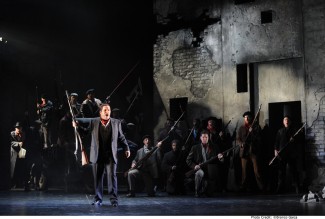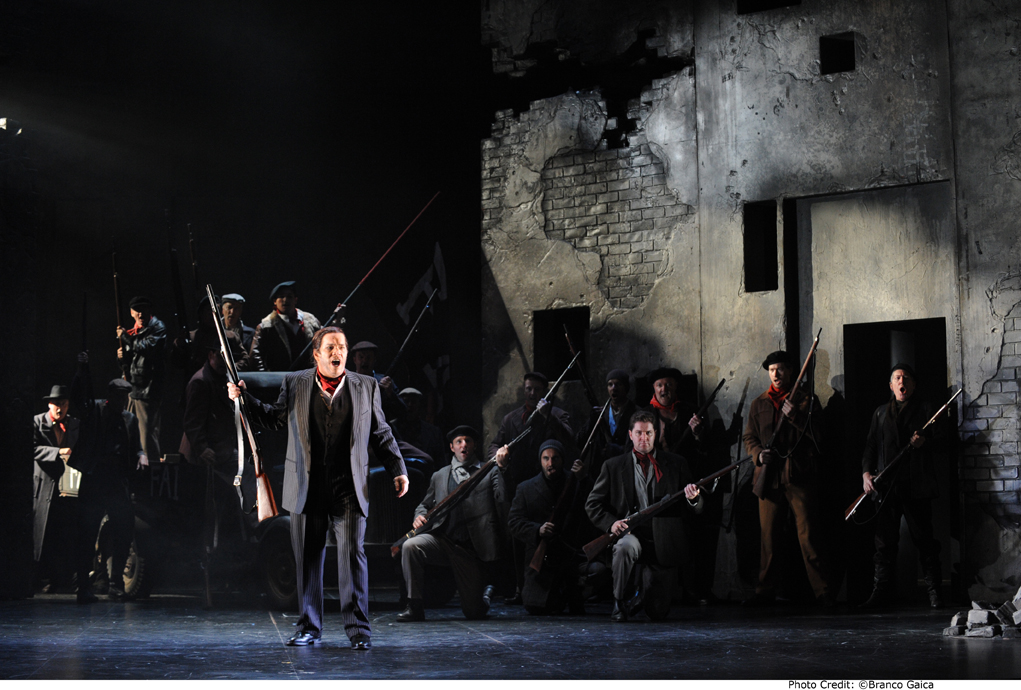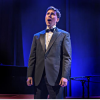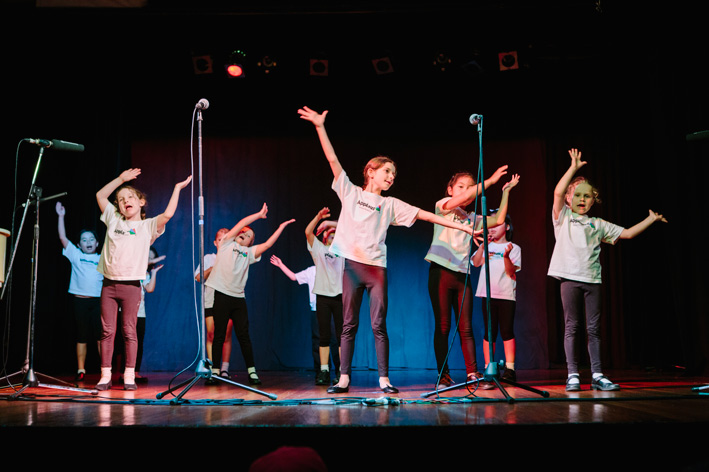Arnold Rawls – a voice for Verdi

It makes sense to be good friends with people you have to work with. Especially if they are people whose characters you have to inhabit. American tenor Arnold Rawls is in Sydney to sing the role of Manrico for Opera Australia in Il Trovatore. Sitting in the Green Room of the Sydney Opera House, Rawls confesses “Manrico is probably my best friend opera wise. We’re friends. I’ve sung him more than I’ve sung any other role. I love singing him.”
This companionship held Rawls in good stead when he was called upon by the Metropolitan Opera in New York during the 2010-2011 season, to cover the ailing Marcello Alvarez in this role. Rawls recounts: “I’d just sung the role in Seattle to success. The Metropolitan Opera got into trouble, so they called and asked if would come and stand in the wings just in case they needed me. Sure enough they did.”
A debut at the Met doesn’t come harder than this. Alvarez sang the first part of the opera before coming off, requiring Rawls to go into the second half ‘cold’ with two big arias Ah si ben mio and Di quella pira and a big duet to sing – coupled with having to convey the dramatic intensity which has gathered by now. Rawls is the calibre of professional who can smilingly describe the experience as being a ‘lot of fun’ although he acknowledges that stepping into the role at that point did pose its challenges. “Verdi is very good about pacing the singers so without the opportunity to build up to the second half arias, it was more difficult. Thank goodness I’m one of those singers who doesn’t take much to warm up.”
Talent or technique I asked? “I put it down to the fact that I sing everyday” was his understated response.
Sitting in the audience that evening at the Met was the Artistic Director of Opera Australia, Lyndon Terracini.”I happened to hear him when he went on as Manrico. It is a very very difficult role to sing and there are few people in the world who can sing it well.”
Terracini takes his brief as Artistic Director to the max. “From my perspective, part of my responsibility is to present opera at the highest level. That’s why you go to the theatre – for an extraordinary experience and a part of that is having extraordinary singers.”
Fast forward to January 2013 and Terracini has secured the talents of Rawls to sing Manrico in Sydney. Observing one of the final rehearsals, I was told that Rawls was unwell and would be saving his voice for opening night. That he turned on his full voice was a pleasant and sufficient surprise. However, the piece de resistance was Di quella pirra, delivered with strength, stylish agility and a gorgeous tone topped with a brilliant high C.
Yet, opera was not the first stop for the Louisiana born tenor. ” I began in church music and I still am a church musician. I trained at the Southwestern Baptist Theological Seminary in America to be a minister and came to opera very late, in my early 30s. I only started singing opera when I did my doctorate in opera at the University of Oklahoma.”
Arnold Rawls has several other good friends in the world of grand opera, amongst them, Calaf, Radames, Turiddu, Canio, Erik and Walther, which makes him well placed to comment on the enduring appeal of Verdi’s operas two centuries after his birth. “I think Verdi is the quintessential opera composer. He writes perfectly for the voice, he understands people and he can convey drama. He is as alive today as he was 200 years ago.”
Lyndon Terracini agrees. ” It’s not just wonderful music. Verdi was so political and connected to the people – he sat in the Italian parliament and his operas were relevant enough to be popular in his lifetime. His operas have a message and he engaged a large audience. Underneath the music, his operas have something to say. When all of these factors come together combined with singers who perform these very big and challenging roles well, the audience is touched.”
Come opening night, Lyndon Terracini’s wish came true. He wanted Australian audiences to hear Arnold Rawls sing Di quella pirra culminating in a dazzling high C, and Rawls delivered with aplomb, joined on stage by three other principals, Daria Masiero as Leonora, Milijana Nikolic as Azucena and Michael Honeyman as Count di Luna. “The operas of Verdi and Puccini, Wagner and Bizet are the cornerstones of any major opera company. You can’t present them without the right singers – and it would be tragic if our audiences are unable to see these operas. Fortunately for us this year, it’s going pretty well.”
Despite the constraints of having to employ singers by quota, Terracini takes pride in assembling soloists from overseas to share the stage with home grown principals in the casts for the two Verdi productions running in parallel in Sydney. “In Ballo we have a Mexican, a Georgian, an Argentinian born Australian and a Bulgarian. In Trovatore we have an American, an Italian, a Serbian born Australian and an Australian. You see these international casts in opera houses all over the world. It’s about assembling a cast who can effectively meet both the musical and dramatic demands of these roles, regardless of where they are from.”
Arnold Rawls has the last word. “You’ve got a great opera house and a great company. Lyndon, has done an incredible job of assembling four extremely strong Verdi voices to sing this. It’s the only way to pull off ‘Trovatore’ and this is probably one of the best ‘Trovatores’ I’ve been part of.”
Shamistha de Soysa for SoundsLikeSydney.©
Il Trovatore is showing in the Joan Sutherland Opera theatre of the Sydney Opera House on selected evenings and an afternoon until March 5th 2013.





